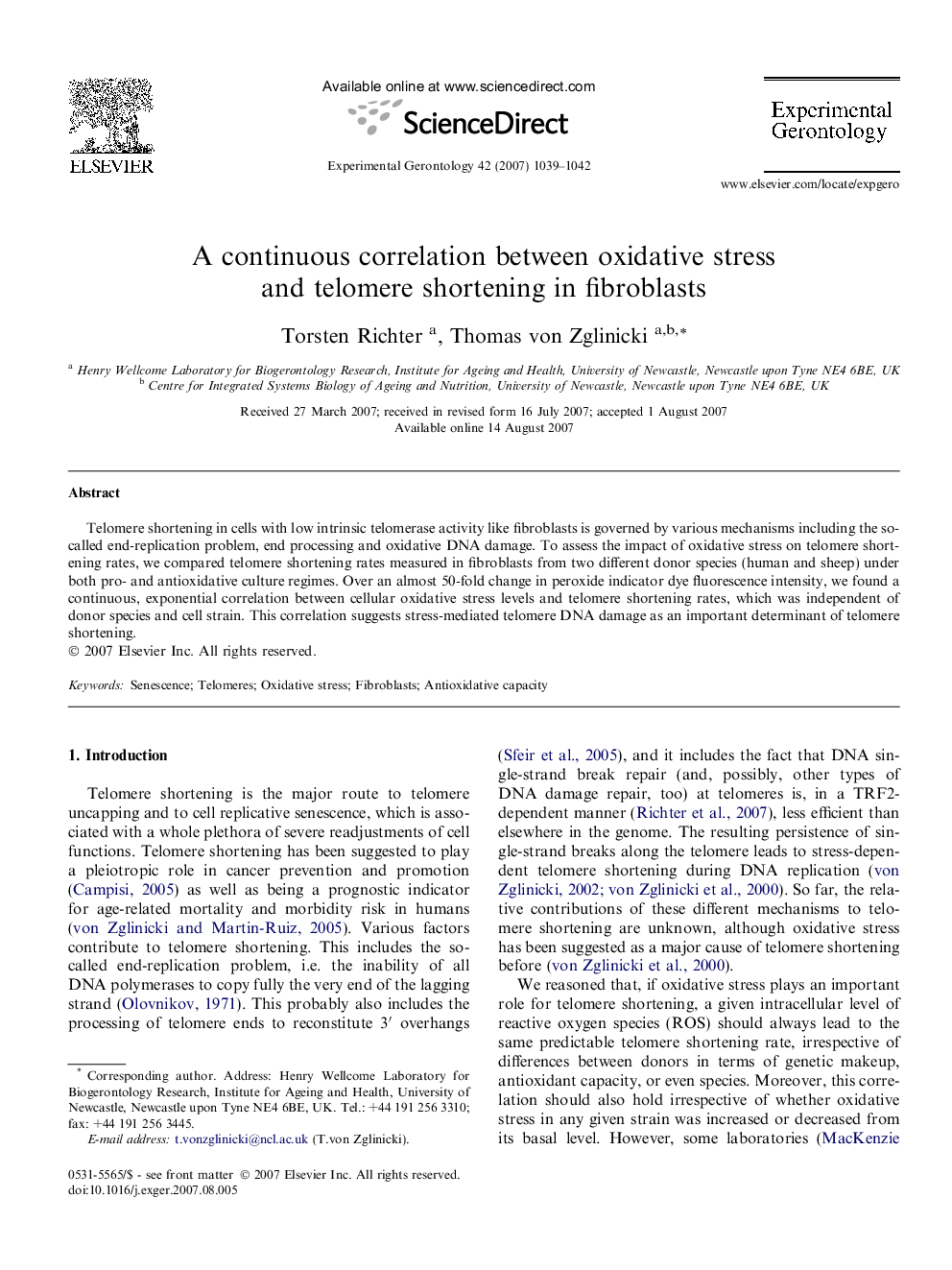| Article ID | Journal | Published Year | Pages | File Type |
|---|---|---|---|---|
| 1906867 | Experimental Gerontology | 2007 | 4 Pages |
Telomere shortening in cells with low intrinsic telomerase activity like fibroblasts is governed by various mechanisms including the so-called end-replication problem, end processing and oxidative DNA damage. To assess the impact of oxidative stress on telomere shortening rates, we compared telomere shortening rates measured in fibroblasts from two different donor species (human and sheep) under both pro- and antioxidative culture regimes. Over an almost 50-fold change in peroxide indicator dye fluorescence intensity, we found a continuous, exponential correlation between cellular oxidative stress levels and telomere shortening rates, which was independent of donor species and cell strain. This correlation suggests stress-mediated telomere DNA damage as an important determinant of telomere shortening.
